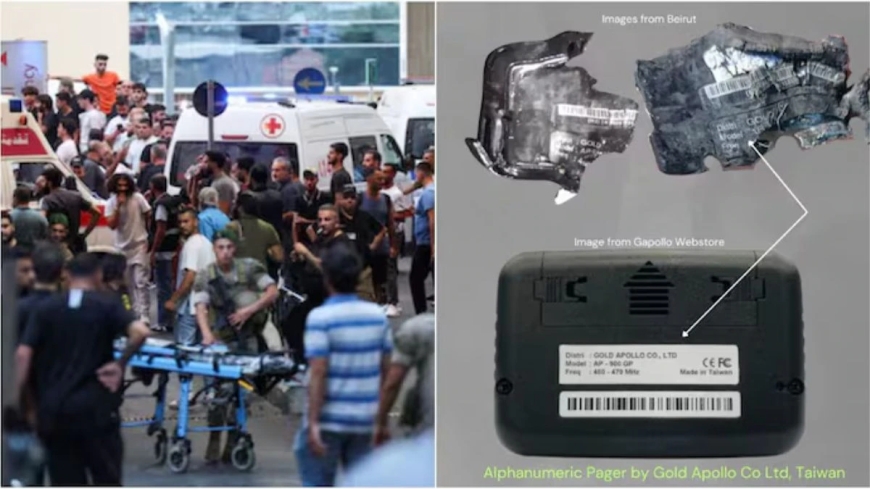The Pager Bombing in Lebanon: Where Does Israel's Campaign of Terror End?

By: H. Zaïm-Bashi
On Monday afternoon, Israel's extensive operation against Hezbollah once again revealed that Israel is not merely a country but a terrorist organization. Observers describe this sabotage campaign as the largest targeted assassination operation and the deadliest attack of its kind—a terrorist assault that has never before inflicted injuries on thousands of innocent civilians.
This destructive attack not only inflicted severe damage on Hezbollah personnel but also on ordinary civilians that used pager technology. Given that the majority of pager users are emergency response personnel (paramedics, firefighters, civil defense), this sabotage by the Zionist regime can be considered an act of mass terrorism. The Lebanese government possesses the ability to seek legal action in global arenas.
Although the nature of the pager explosions in Lebanon remains unclear, we might conjecture on Israel's possible objectives in carrying out this operation.
a- Compensating for Israel's Military Humiliations: Apart from the heroic resistance in Gaza and the West Bank over the past eleven months, the Israeli regime and its Western supporters have faced significant setbacks during the Arbaeen operation and, more recently, in Yemen's ballistic strike. Therefore, the Israeli leadership sought, through this action, to escape the persistent humiliations they have faced and to seek an opportunity for political and security rehabilitation.
b- Collaboration between Washington and Tel Aviv: Despite numerous U.S. officials' claims that they were unaware of Israel's sabotage operation, evidence indicates that Americans were once again involved, as in many of the Israeli-orchestrated terrorist operations. The American Hospital in Beirut reportedly asked all its staff in an email last month to submit their pages for updates and upgrades by August 29. Additionally, on Monday afternoon, observers spotted American military aircraft, utilized for electronic warfare and communication-related operations, near the Lebanese coastline in the eastern Mediterranean.
c- Hezbollah's intelligence vigilance: Due to Hezbollah’s suspicions regarding the pagers several days before the attack and their investigation into the matter, the Israelis and Americans, fearing that Hezbollah would uncover their plan, activated the operation prematurely.
d- Curbing Hezbollah’s military capacity: Given a variety of factors, the most plausible scenario is that this operation aimed to increase pressure on Hezbollah to halt its attacks on northern Israeli settlements. As Israel's war minister claimed after meeting with a U.S. envoy, "The only way to return our citizens to their homes in the north is to conduct military operations against Hezbollah."
Ultimately, Hezbollah will not retreat from its rightful positions despite the Zionist regime's widespread sabotage operation, which aims to weaken its operational capabilities. Most Hezbollah personnel sustained only minor injuries and, after treatment, will recover and resume their duties with even greater determination. This time, Hezbollah forces will also enjoy the support of ordinary citizens, as the Israeli regime’s operation not only harmed Hezbollah members but also affected civilians. This has, in turn, bolstered Hezbollah’s social base in Lebanon and beyond.













































